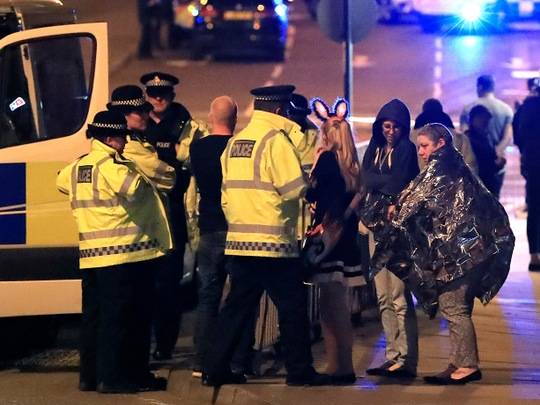
London: Young Arabs living in the UK have spoken of their horror at recent terror attacks here and admitted they are struggling to comprehend why a tiny minority of their peers are becoming radicalised.
Manchester Arena bomber Salman Abedi, who killed 22 people at an Ariana Grande concert last month, was a 22-year-old British-born Muslim of Libyan descent, while two of the London Bridge attackers were also from North African families.
That has left many people questioning why young Arabs are turning to extremism — but the attackers’ contemporaries are determined their actions will not taint the entire community.
Student Hassan, who asked for his surname to be withheld, said it is wrong for people to try and justify the jihadists’ motives by giving reasons for their radicalisation.
“I think if you try and find reasons for somebody becoming radicalised, in reality they are just excuses. So if a terrorist was a loner, was from a troubled background, or was shunned by his peers — so what? So are countless others, but they don’t commit these acts,” he said.
“Some may have a common link in that they are from the Arab world, but that doesn’t explain them becoming radicalised. I think it is just about very bad people manipulating them to do very bad things.”
Mohammad Al Sa’ad, 21, who is originally from Egypt, believes politics should not be used as an excuse for terrorism.
“Many people are angry about the West’s policies in the Middle East, their often reckless, self-serving approach to toppling regimes and then leaving the ordinary people to fend for themselves,” he said. “I guess these terrorists feel like they have nothing to lose, but that’s no reason to do what they do. And to do it in the name of Islam is just unthinkable.”
Meanwhile, British Muslim Youth founder Muhbeen Hussain says it is wrong to ask questions of the wider Muslim community and its attitude towards extremism every time there is an attack.
“Young people are vocal on social media about their opposition to terror, but still they are accused of staying quiet and not doing enough to tackle the issue within their community,” he said.
“They are stuck between a rock and a hard place, to say nothing and be accused of complicity or be vocal and attract a barrage of Islamophobic hate and accusations of ‘not doing enough’ to stop their fellow Muslims — most of the time people that they don’t even know.
“It’s like blaming a young Muslim in the North East for not stopping the extremist actions of another young Muslim man on the other side of the country — it is nonsensical.
“The last census recorded the UK Muslim population at 2,660,116 — people need to get it into their heads that not every Muslim in the country knows each other.”
The writer is a freelance journalist based in the UK.












